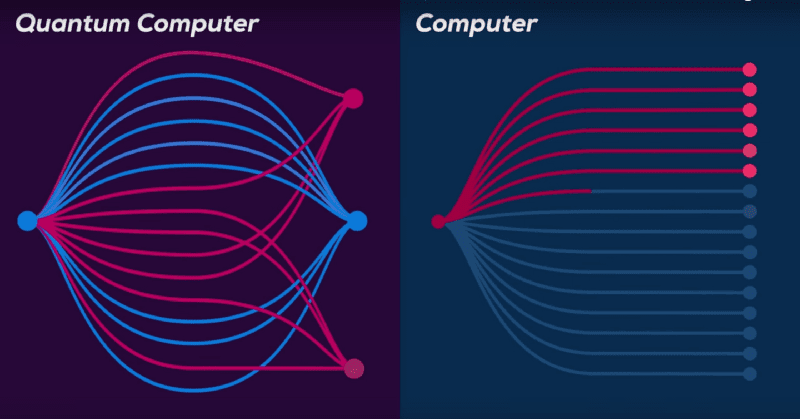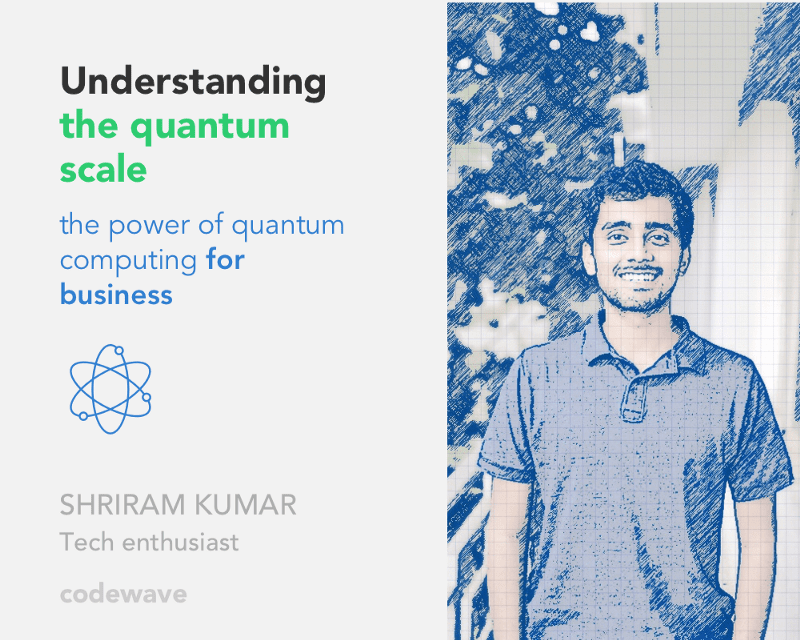If quantum mechanics hasn’t profoundly shocked you, you haven’t understood it yet.
Niels Bohr
Einstein’s theory of relativity does a fantastic job for explaining big things. Quantum mechanics is fantastic for the other end of the spectrum — for small things.
Brian Greene
PRIMER: What is quantum computing by the way?
Quantum computing is based on the principle of quantum physics, which says that subatomic particles can exist in many states at the same time.
Remember Schrodinger’s cat that’s both dead & alive at the same time?

Like how we have bits (either 0 or 1, based on current flowing or not flowing through a silicon transistor) in conventional microprocessors and computers, we have something known as qubits in quantum computing (that carry information in the spin of electrons).
Quantum computing is achieved using specialised computers known as quantum computers which, can process the information much quicker and faster due to qubits, because of their unique property that allows them to be in “many states” at once. This property in quantum physics is called Superposition.
A LEVEL DEEPER: Let’s first understand what a qubit means
Qubits are similar to bits that we are familiar with in conventional computers, with the only difference being it can embody both the states 0 and 1 at the same time.
Weird?
No problem. It’s normal to find it difficult to imagine quantum behaviors at a human scale.
To understand qubits much better, let us take an example of a sphere. Bits 1 & 0 in conventional computers could be the sphere spinning in one direction at any given point of time — say 1 when the direction is up, 0 when the direction is down. Whereas, a qubit could be the sphere spinning in all possible directions at once. Its very difficult to imagine this at a human scale, but this is how objects behave at a quantum scale (sub-atomic level), when they’re unobserved.
How can quantum computers solve problems we’re not able to solve today?

Quantum computers can solve problems like below which a traditional computer would take days to compute:
- Finding the most optimal route among a million possible paths to move from point A to B (a traditional computer may take a long time to run these computations)
- Finding a new medicinal compound, from a million possible molecular combinations
It also paves way for groundbreaking researches in various fields like physics, gaming etc.
Okay, now what’s with this atomic data storage? Does it have anything to do with quantum computing?
Talking of quantum computing that exploits the behavior of subatomic particles, to compute a million possible scenarios to visualize highly probablistic, optimal outcomes — let’s imagine what if we stored petabytes of data in atoms (which is there in all matter & space) instead of hard disks.
Atomic data storage is a trending research topic today and could become practically possible (store data in atoms) in future, which could completely revolutionize the way by which we store, access and manipulate digitally stored information. This would completely wipe out the necessity of owning a computer or any electronic gadget for that matter.
For example, you could go to a tree and stand next to it to see its information in a digitized format. With further more technological advancements, you might not even need a huge storage devices, as environment or the “surrounding as a service” can be used for information storage.
Stay connected to Codewave for more such insights and feel free to reach us at hello@codewave.in or +91 8971824910. If comfortable you may drop by at 1st Floor, Shree Chambers, #307, Outer Ring Rd, Banashankari 3rd Stage, Bengaluru, Karnataka 560085. Thanks for taking out time to read this article. We hope it enriched your existing knowledge. Do let us know your views, by sending an email to hello@codewave.in.
Insight shared by Shriram Kumar, Codewaver, Tech enthusiast









